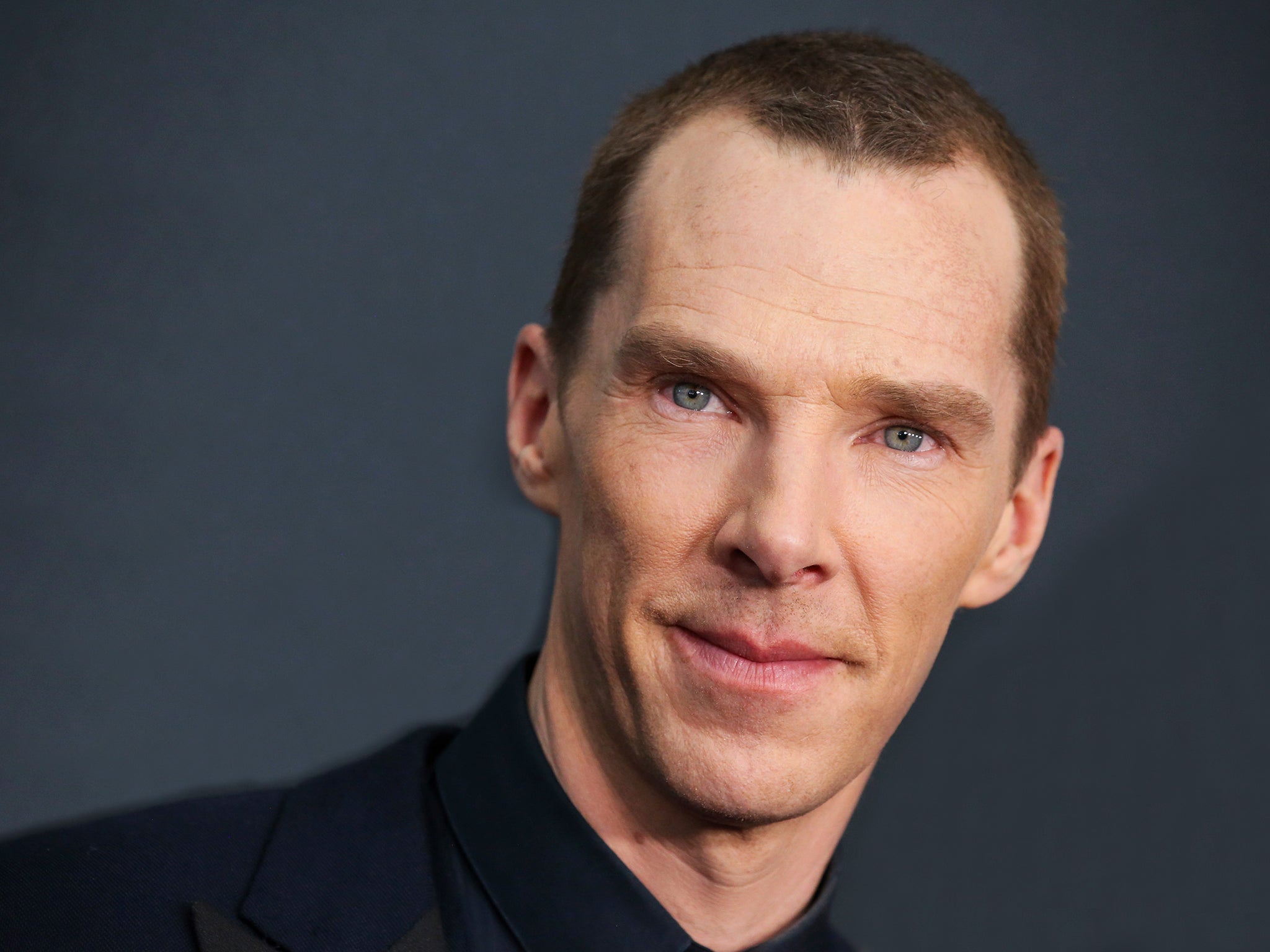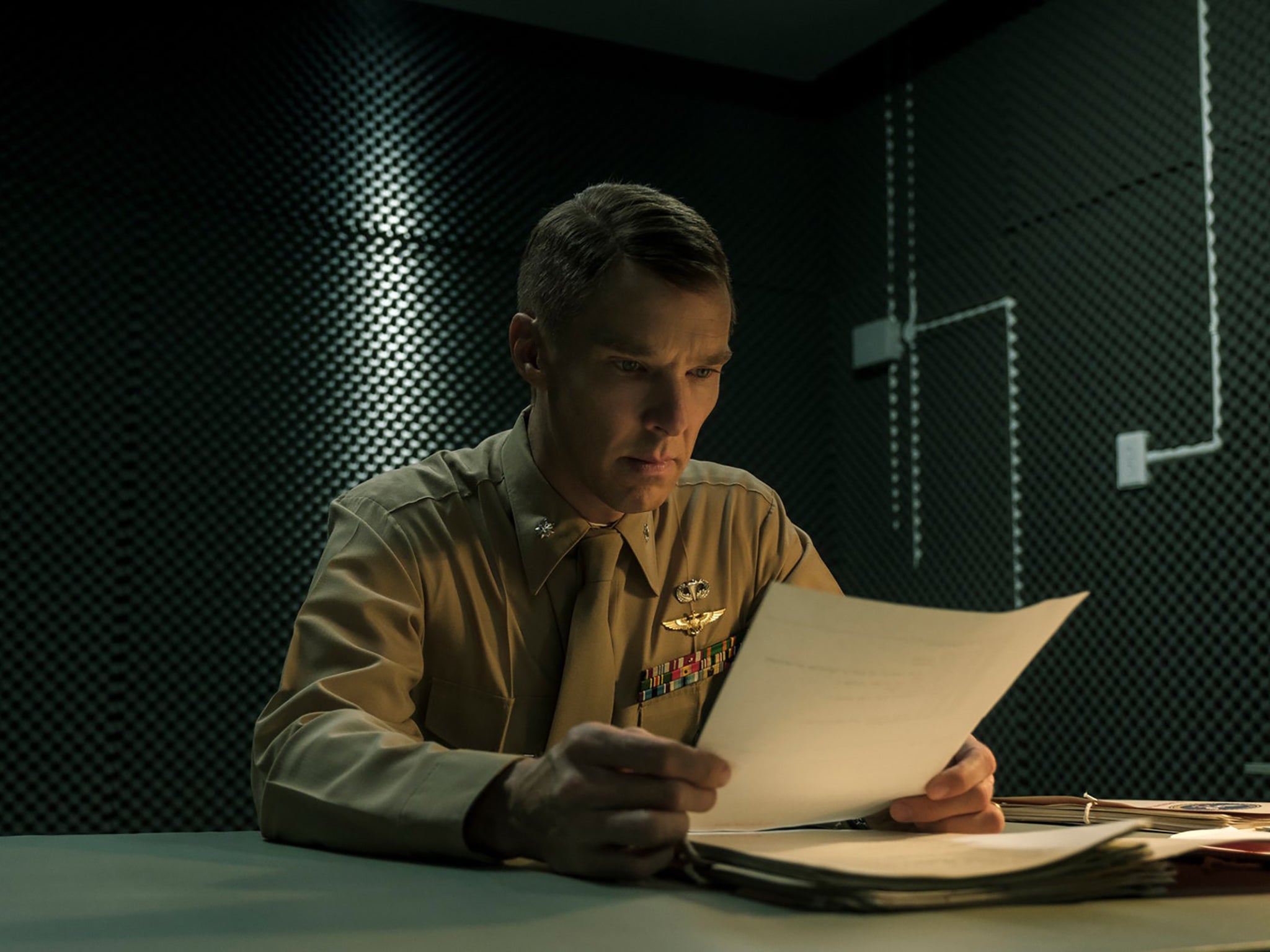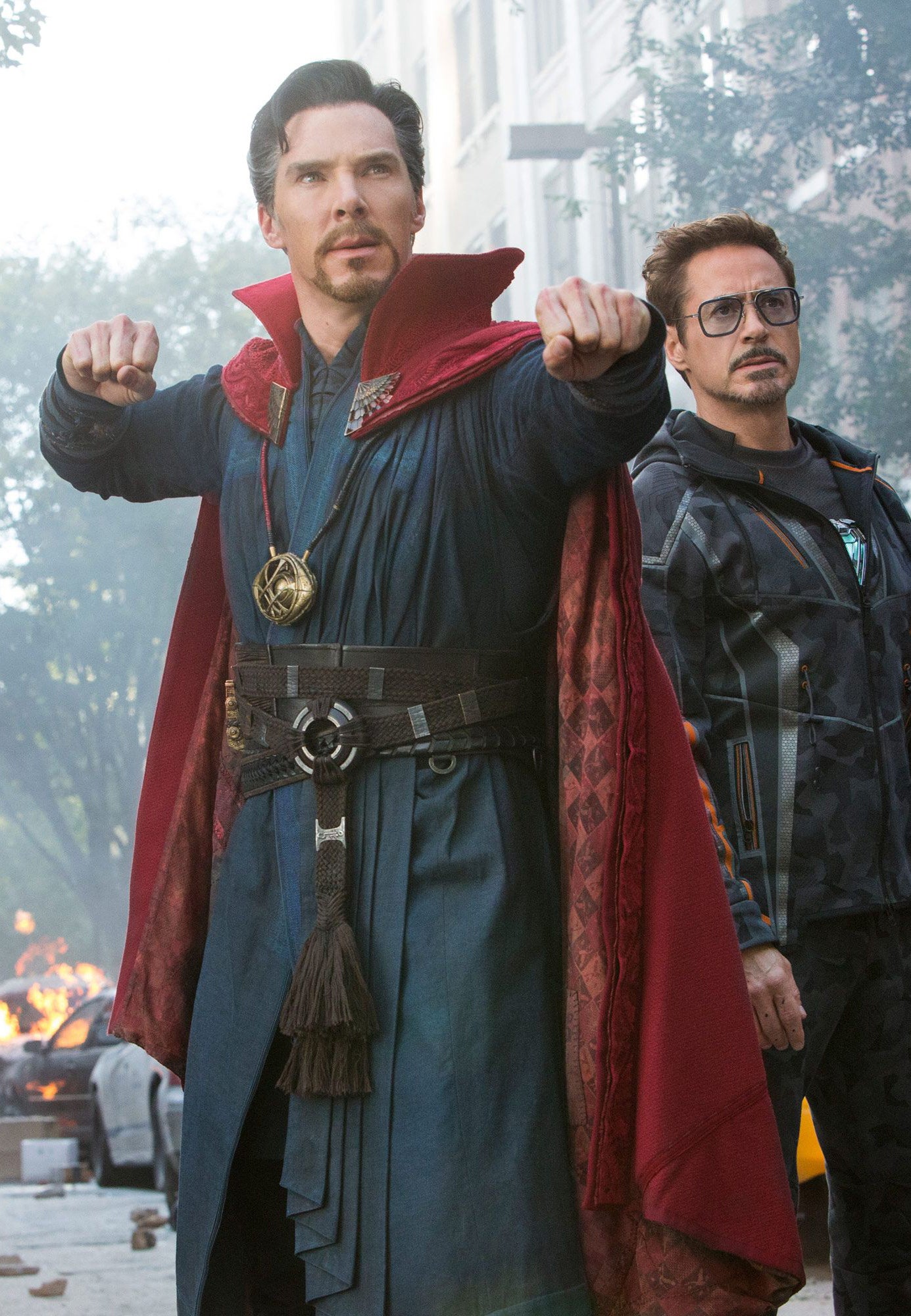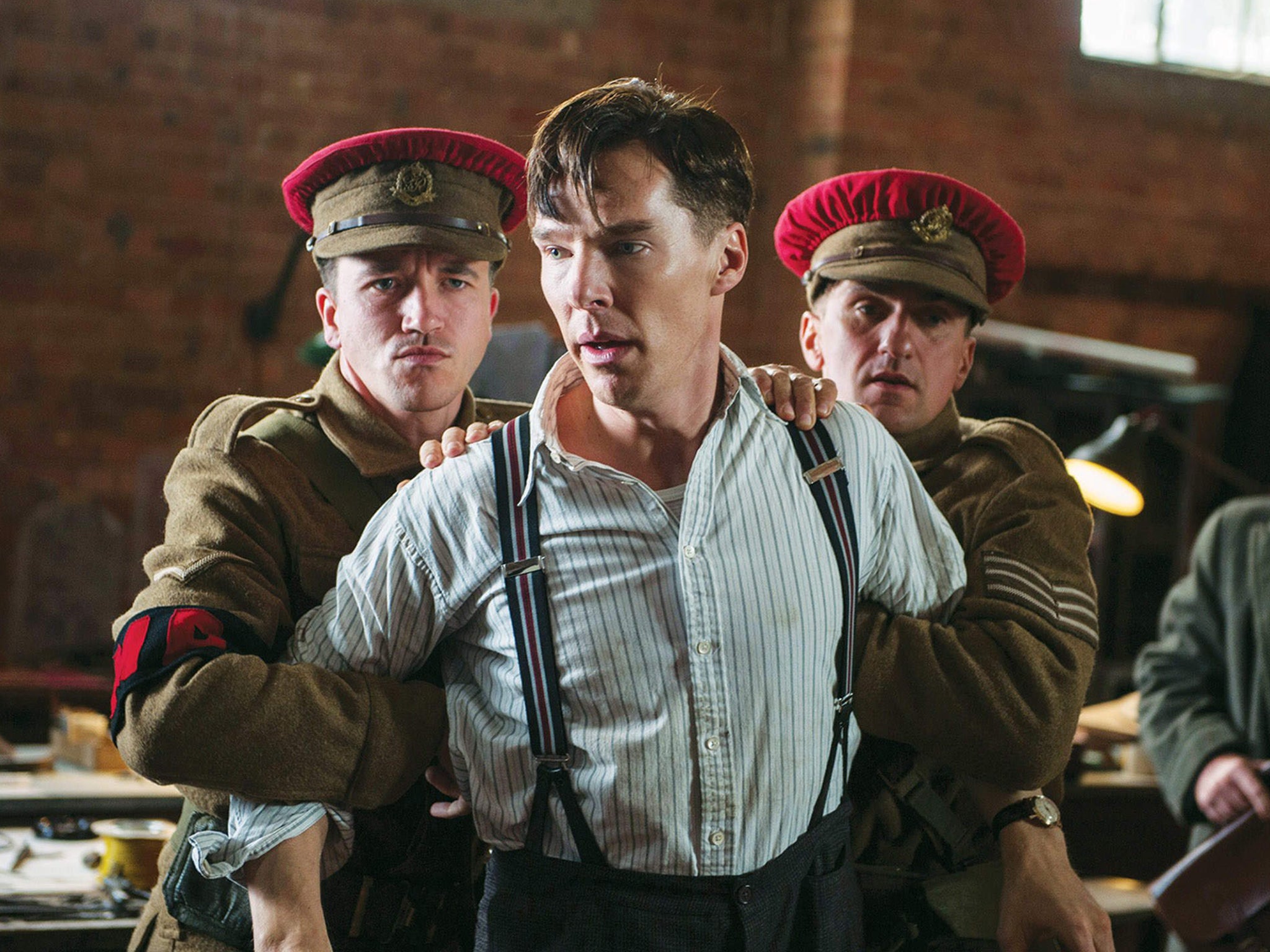Benedict Cumberbatch: ‘Joe Biden? I’m going to plead with the guy to shut Guantanamo’
The actor talks to James Mottram about his Bafta-nominated film about an inmate of the infamous US detention camp; working with Jodie Foster and The Serpent’s Tahar Rahim; and why he worries he may have been Covid’s ‘patient zero’

At the beginning of last year, when news began to emerge of a mysterious, deadly new virus that was spreading across the globe, Benedict Cumberbatch was struck by a horrible thought. At the end of 2019, he had flown to South Africa to shoot new film The Mauritanian, but as he arrived, he tells me, he fell sick. “I was incredibly ill, to the point that when all this Covid stuff suddenly broke in the new year, I was thinking, oh my god was I actually patient zero. I was so ill – it was borderline pneumonia.”
He had to plough on regardless, “throwing up between takes”, as shooting commenced. The film was being produced by the independent film and TV company he jointly owns, SunnyMarch. They had recreated Guantanamo Bay in Cape Town, and they were working on a story that had possessed Cumberbatch for six years.
When the Sherlock star had read an extract from Mohamedou Ould Slahi’s harrowing memoir Guantanamo Diary, his reaction had been immediate and visceral. “I was hooked on his voice,” he says. A former electrical engineer, Slahi was questioned after the 9/11 attacks by Mauritanian authorities before being transported to the Guantanamo Bay detention camp set up by the US military on the coast of Cuba. From here, Slahi wrote about his nightmarish incarceration, during which he was frequently tortured. He remained there for 14 years without charge, until his release in October 2016.
Cumberbatch knew at once he wanted to make a film about Slahi’s experiences, and the painstaking development process for The Mauritanian began. The film, which stars Cumberbatch, Jodie Foster and Tahar Rahim, has already garnered a Golden Globe for Foster, who plays Nancy Hollander, the crusading lawyer who spent years trying to get Slahi out of Guantánamo. In just over a week, it will compete for five Baftas, including Best Film and Outstanding British Film.
Among the many masterstrokes pulled by Cumberbatch and his team was casting Rahim as Slahi. The French-Algerian actor, who recently played serial killer Charles Sobhraj in hit BBC drama The Serpent, insisted that he faced the ordeals of being waterboarded and force fed for real – “so I could feel exactly what Mohamedou has been through”, says Rahim. “Tahar really went the full distance,” says Cumberbatch. “It’s such a subtle, fluid, charming, humorous – as well as dangerous and distressing and heartbreaking performance.”
The actor believes he understands what led to Guantánamo in the aftermath of 9/11, that the world was gripped by terror. “I remember cycling along the Embankment thinking things were gonna fall out the sky,” he says. “It was a global act of terror on an ideal – an ideal [that] lives geopolitically in many parts of the world. And of course, it’s more acute – most acute in New York, in the intelligence services, who feared that there was going to be another attack.” He recalls the anxiety felt by friends and family in New York. “That the water was poisoned, the air was poisoned. Just so much fear.”
He concedes that US intelligence services “really were under a great deal of strain to try and stop a second attack. And that’s really what I understand galvanised this, but we are, I think, far enough away now from that reaction, that understandable emotional reaction, to question its ongoing validity. And I feel quite strongly that Guantánamo doesn’t have a place in our world.”
Does he hope that now Joe Biden is in the White House, the new US president will set about closing the prison? “Hoping? I’m going to plead with the guy,” retorts Cumberbatch. “It is a huge spend. It’s the most expensive prison on earth. And what are the results? Where are the prosecutions? That’s just being really brutally economic about it, it just doesn’t work. And then you have the human rights issue. It’s an atrocious own goal, I think for the free world to be incarcerating people through extraordinary rendition, torturing them and extracting confessions they think are then usable in prosecution… it is a really dangerous, unnecessary and ineffectual place, I think, and enough people have suffered there.”
Cumberbatch has never been afraid to make his political views known in public. When he was performing Hamlet at the Barbican, he regularly made a plea at the end of his performances to help raise money for Syrian refugees. He even called out “the utter disgrace of the British government” for not doing more in the crisis. He also campaigned for Remain during the run-up to the referendum to leave the EU, and later played Brexit mastermind Dominic Cummings in the Channel 4 movie Brexit: The Uncivil War.

Watch Apple TV+ free for 7 day
New subscribers only. £9.99/mo. after free trial. Plan auto-renews until cancelled.
ADVERTISEMENT. If you sign up to this service we will earn commission. This revenue helps to fund journalism across The Independent.

Watch Apple TV+ free for 7 day
New subscribers only. £9.99/mo. after free trial. Plan auto-renews until cancelled.
ADVERTISEMENT. If you sign up to this service we will earn commission. This revenue helps to fund journalism across The Independent.

He’s come under fire for airing his beliefs too, The Spectator previously asking: “Is Benedict Cumberbatch the new Russell Brand?”, with the actor becoming “the celebrity champion of fashionable political causes”. Yet politics is in his bones. Although he’s the son of actors Timothy Carlton and Wanda Ventham, his great-grandfather Henry Arnold Cumberbatch was a diplomat who served as consul in Turkey and Lebanon. Even further back, his great-great-grandfather Robert William Cumberbatch was also a British consul in the Russian and Ottoman Empires at the time of the Crimean War.
For the moment, Cumberbatch is stepping away from more political dramas and back into the Marvel world, reprising his Doctor Strange for both Spider-Man: No Way Home and then Doctor Strange in the Multiverse of Madness. But it’s what he and SunnyMarch do next that intrigues. He’s lined up to shoot War Magician – about the 1930s and ’40s stage illusionist Jasper Maskelyne, who was seconded to the intelligence services in the Second World War – with Jurassic World director Colin Trevorrow. “It’s thrilling to be at the inception of a project to its completion,” he says.
As we speak over Zoom, Cumberbatch is still glowing with excitement about The Mauritanian. “I’m really proud of what we’ve achieved,” he says. “Building something from the ground up… is very, very satisfying.” The 44-year-old is evidently using his growing cachet as an actor in a committed way. Even before The Mauritanian, the two television dramas his company backed felt like a real statement of intent.

In 2017, he led the Ian McEwan adaptation The Child in Time, a haunting drama about in which he played a children’s author whose daughter goes missing. A year later came Patrick Melrose, a sizzling five-part show for Sky Atlantic taken from the Edward St Aubyn novels. He was nominated for a Golden Globe and won a Bafta (his first at the eighth attempt) for his portrayal of the titular drug-addict spiralling out of control.
More importantly, Cumberbatch got a taste of what it was like to develop a project from scratch. “Not that I haven’t enjoyed my immersion into projects as an actor, but [when you’re producing] you’re not just sitting around [waiting] for the call. You are the call. You’re trying to innovate the idea of how something could be made and cast and directed. You develop the script with writers, you talk it over, you think about who can direct it.”
With The Mauritanian, as producer, he brought on Kevin Macdonald, the Scottish director (Whitney, The Last King of Scotland) who won an Oscar for his 1999 documentary One Day in September, which dealt with the shocking terrorist murder of 11 Israeli athletes at the 1972 Olympics in Munich. It was Macdonald who convinced Cumberbatch to take the supporting role of Lt Col Stuart Couch, the US military prosecutor who lost a friend on one of the planes that crashed into the World Trade Centre on 9/11.
“I very much like the fact that Benedict character... he’s a Republican, he’s a Christian, he’s a military lawyer,” Macdonald explains. “I guess in the normal way of telling this sort of movie [he] would be vilified, but actually he was heroic.” After trips to Guantánamo, Couch is horrified when he realises Slahi’s “confessions” of connections to terrorist network al-Qaeda were obtained via prolonged torture – sleep deprivation, starvation, beatings, even sexual harassment.
Cumberbatch has played his share of real-life characters before – from physicist Stephen Hawking to Alan Turing, the famed mathematician who cracked the German Navy’s Enigma code in the Second World War, in The Imitation Game, the film that won him an Oscar nomination. He recently completed work on The Courier – due later this year – which sees him play Greville Wynne, a British businessman who became a go-between for MI-6 and the Soviet intelligence officer Oleg Penkovsky, who spied for the West in the 1960s.

Yet Couch offers a huge arc for Cumberbatch to play – a 180 degree turn in his beliefs. As Macdonald puts it, “He was the one who almost had to do more than Nancy did in order to stand up against the tide, the tide of what the government was trying to do and say, ‘No, this goes against my principles.’ It goes against his constitutional principles, but more than anything [against] his religious principles, his Christian principles.”
Juicy though it was, Cumberbatch was reluctant at first. He had to squeeze in his scenes in South Africa between two other projects. He’d just come off another SunnyMarch production, Louis Wain, in which he plays the late 19th century British artist known for his surrealist cat illustrations. And was about to go to New Zealand to shoot Jane Campion’s tale of two warring brothers The Power of the Dog, where he spent six months with wife Sophie Hunter and their three boys, Christopher, 5, Hal, 4 and Finn, 2.
Working through his illness in Cape Town, though, he says, he got to act with “one of my all-time heroines” Jodie Foster, notably in a scene where they meet in – believe it or not – a gift shop at Guantánamo Bay. “It’s so f***ing weird,” he says, marvelling at the surreal quality of being able to buy humorous mugs and commemoration T-shirts at the world’s most notorious prison. Yet – just in the way tourists travel to Alcatraz in their droves – he believes the same will happen with Guantánamo. “It will become a source of walkthrough experience with people, slopping their daiquiris all over the floors where blood was spilt,” he says. “Hopefully, it won’t be for long.”
The Mauritanian is available on Amazon Prime



Join our commenting forum
Join thought-provoking conversations, follow other Independent readers and see their replies
Comments